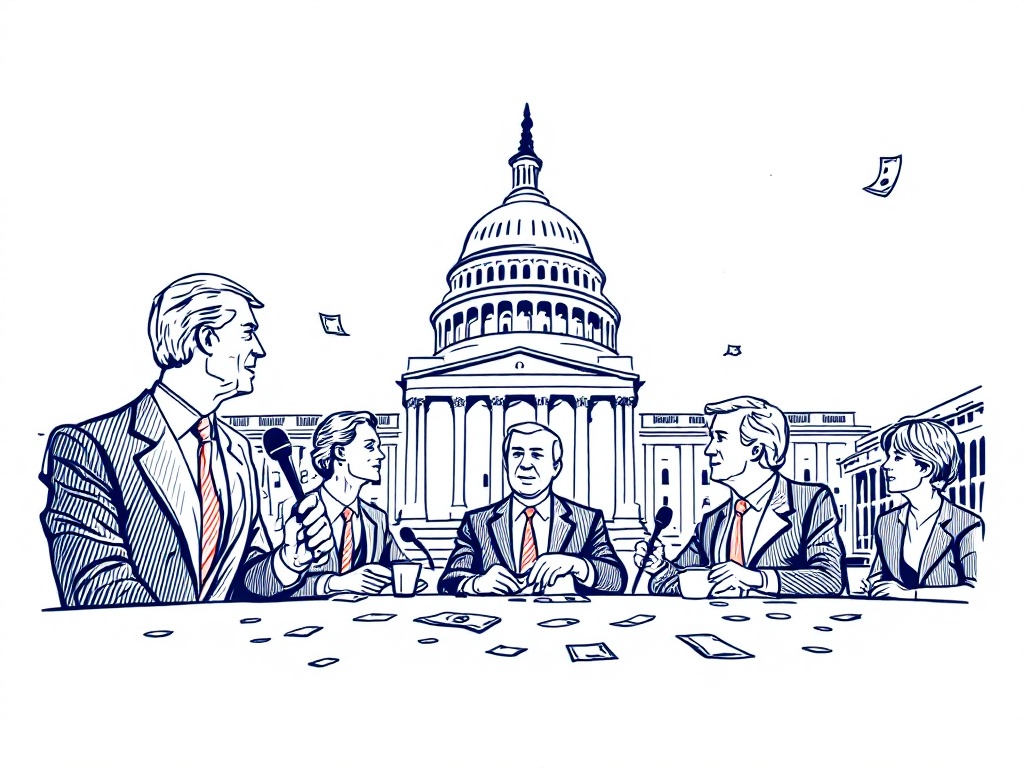House Faction Advocates Stock Trading Ban for Lawmakers Amid Leadership Silence

Washington D.C., Monday, 28 April 2025.
A group of U.S. House members is pushing for a ban on stock trading by Congress members to tackle potential conflicts of interest, despite leadership’s lack of engagement.
Bipartisan Push for Legislation
The move toward prohibiting stock trading among lawmakers has found support across party lines, despite the hesitation from House leadership to put such a measure to a vote. Notably, Representatives Seth Magaziner, Chip Roy, Alexandria Ocasio-Cortez, and Brian Fitzpatrick are at the forefront of this legislative push. They are exploring penalties for lawmakers involved in stock trades, including those related to cryptocurrency, to eliminate potential ethical conflicts within the legislative body [1][2].
Leadership and Legislative Silence
Despite growing calls for action, House leadership, specifically Speaker Mike Johnson, has shown little inclination to discuss or move forward with the proposal. This lack of action comes amidst recent public statements by President Donald Trump and House Minority Leader Hakeem Jeffries, both of whom have expressed their backing for such a ban [1][3]. President Trump’s comments, as highlighted in a recent interview, aim to address public concerns over possible exploitation of insider information by members of Congress [3].
Current Legislative Efforts and Challenges
Several legislative measures addressing the issue have been introduced, including Senator Josh Hawley’s PELOSI Act, which seeks to restrict Congress members and their spouses from trading stocks while holding office. The proposed legislation, however, faces slow progress and lacks the momentum needed for immediate enactment. Proponents of the ban continue to press for a resolution within the current legislative agenda, highlighting the necessity for transparency and accountability [4].
Public and Political Reactions
Public sentiment reflects a growing demand for reform, driven by incidents where members of Congress have been perceived to benefit financially from confidential information. This topic has political ramifications, as it involves high-profile figures from both parties, making it a focal point of public debate concerning government ethics and integrity. While federal law restricts trading based on non-public information, critics argue that existing penalties are insufficient to deter unethical behavior effectively [5][6].
Sources
- www.semafor.com
- www.bloomberg.com
- theedgemalaysia.com
- www.foxnews.com
- news.yahoo.com
- news.futunn.com